
Friday, September 18, 2020
The HINDU Notes – 18th September 2020

THE HINDU NEWSPAPER IMPORTANT ARTICLES 18.09.2020

Click Here to Like our Facebook page for latest updates and free ebooks
NATIONAL
INTERNATIONAL
OPINION
UPSC Topper Gaurav Agrawal Indian Economy Notes PDF
UPSC Topper Gaurav Agrawal Indian Economy Notes PDF

Aircraft (Amendment) Bill 2020
Why in news?
Rajya Sabha has passed the Aircraft (Amendment) Bill 2020.
What does the amendment seek to do?
- The bill will amend the Aircraft Act of 1934.
- It seeks to provide statutory status to the
- Directorate General of Civil Aviation (DGCA),
- Bureau of Civil Aviation Security (BCAS), and
- Aircraft Accidents Investigation Bureau (AAIB).
- It seeks to expand the role of the two regulators, DGCA and BCAS.
What will change when this Bill becomes law?
Thursday, September 17, 2020
Vision IAS Monthly Current Affair August 2020 Pdf Download
Vision IAS Monthly Current Affair August 2020 Pdf Download
Now you have made up your mind to become IAS officer and looking for the books and study materials to achieve your goal. Well, you are on the right page. Now We are Sharing With You Vision IAS Current Affairs August 2020 PDF Download.
This Magazine will Helpful for for Your Prelims paper and Gs Mains Paper. At the end of this article, we have shared links to get Vision IAS Current Affairs July 2020 PDF.
Vision IAS Current Affairs August 2020 PDF
Daily Current Affairs, 17th September 2020

1) World Patient Safety Day: 17 September

•The World Patient Safety Day is observed globally on 17th September to create a global awareness for patient safety and urge people to show their commitment to making healthcare safer. The theme for World Patient Safety Day 2020: Health Worker Safety: A Priority for Patient Safety.
2) Lok Sabha passes bill to cut salaries of MPs by 30%
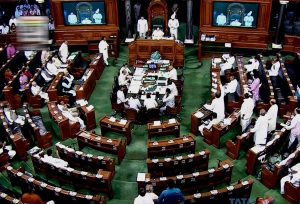
•The Lok Sabha has passed the Salary, Allowances and Pension of Members of Parliament (Amendment) Bill, 2020 on 15 September 2020. The bill seeks to cut salaries of all Members of Parliaments (MPs) by 30 per cent for a period of one year commencing April 1, 2020, to meet the urgent financial need arising out COVID-19 pandemic.
•The Salary, Allowances and Pension of Members of Parliament (Amendment) Bill, 2020 will replace the Salary, Allowances And Pension of Members of Parliament (Amendment) Ordinance, 2020. This ordinance was cleared by the Union Cabinet on April 6, 2020.
3) OECD projects India’s GDP at -10.2% in FY21
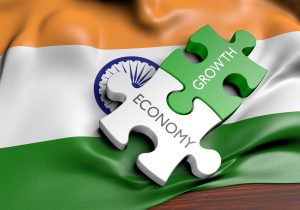
•The Organisation for Economic Cooperation and Development (OECD) expects the Indian economy to contract by 10.2% in FY21 (2020-21) as compared to its previous estimate of 16.7% in June. For FY22 (2021-22), the Paris-based OECD projects India’s gross domestic product (GDP) to grow at 10.7%.
4) M Venkaiah Naidu inaugurated 4th Global Ayurveda Summit virtually
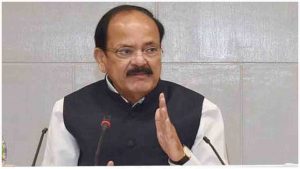
•The 4th edition of Global Ayurveda Summit was virtually inaugurated by Vice-President Muppavarapu Venkaiah Naidu on the theme “Emerging Opportunities for Ayurveda during Pandemic”. The objective of the summit is to showcase the Ayurveda immunity model to the global level as a solution named ‘Health as One’ and ‘Immunity through Ayurveda’.
•Global Ayurveda Summit is being organized by the CII (Confederation of Indian Industry)-Kerala in partnership with Ministry of Ayush (Ayurveda, Yoga and Naturopathy, Unani, Siddha and Homeopathy), and with the support of Ayurveda Medical Association of India (AMAI), Ayurvedic Medicine Manufacturers Organisation in India (AMMOI) and Ayurveda Hospital Management Association (AHMA). It is also supported by the National Ayurvedic Medical Association (NAMA) in the United States (US), Association of Swiss Ayurveda Doctors and Therapists in Switzerland, Association for Ayurvedic Medicine in the Netherlands.
5) Environment Ministerial Meeting of G20 held virtually
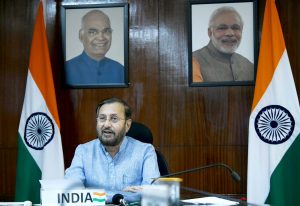
•The Environment Ministerial Meeting (EMM) of the G20 countries was held through video conferencing under the Presidency of Kingdom of Saudi Arabia. Union Environment, Climate Change and Forest Minister Shri Prakash Javadekar represented India in the meeting.
•Global Initiative to reduce Land Degradation and Coral Reef program was launched at G20 Environment Ministers Meet. It aims to strengthen the implementation of existing frameworks to prevent, halt, and reverse land degradation within G20 member states and globally.
6) S Jaishankar chairs IBSA Foreign Ministers’ Virtual Meeting
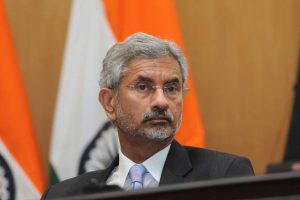
•External Affairs Minister of the Republic of India, Shri S. Jaishankar, chaired the customary meeting of IBSA Foreign Ministers through video conferencing. During the meet, India, Brazil and South Africa emphasized the need for the international community to redouble efforts to achieve tangible progress for accelerated and comprehensive reform of the UN Security Council. The ministers adopted the IBSA Joint Ministerial Statement on the Reform of the UN Security Council, as a common endeavour of the Global South.
•During the meet, the ministers exchanged views on furthering IBSA cooperation. They exchanged views on various issues of global significance including peace, security, countering terrorism, climate change, sustainable development, multilateral trading system, disarmament, non-proliferation issues and South-South Cooperation.
7) SBI, Titan launch contactless payment watches “Titan Pay”

•Titan Company has partnered with the State Bank of India (SBI) to launch India’s first contactless payment watches named “Titan Pay”. Using these watches, the account holders of SBI can tap their Titan Pay watch on the contactless payment POS machines for making payments. It is powered by YONO SBI.
8) Webinar on “Faculty Development for Quality Education”
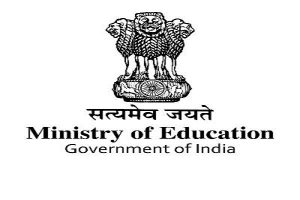
•The Ministry of Education organized a webinar on Faculty Development for Quality Education under Shikshak Parv Initiative. The webinar was organised to reflect on the roles and responsibilities of teachers in the light of National Education Policy (NEP) and to understand various aspects of capacity development and career progression of the faculty.
•Shikshak Parv is being celebrated by Ministry of Education from 8th September-25th September, 2020 to felicitate the Teachers and to take New Education Policy 2020 forward.
9) UBS Securities projects India’s GDP at -8.6% in FY21

•UBS Securities has projected India’s GDP for 2020-21 (FY21) to contact by 8.6%. (Earlier it was -5.8%). For FY22, UBS Securities projects India’s GDP to grow by 10%. UBS Securities is a Chinese investment bank and brokerage firm headquartered in Beijing, China.



